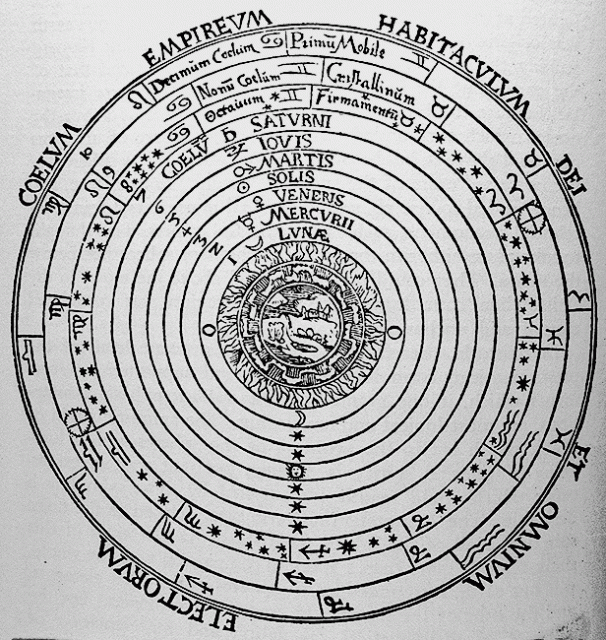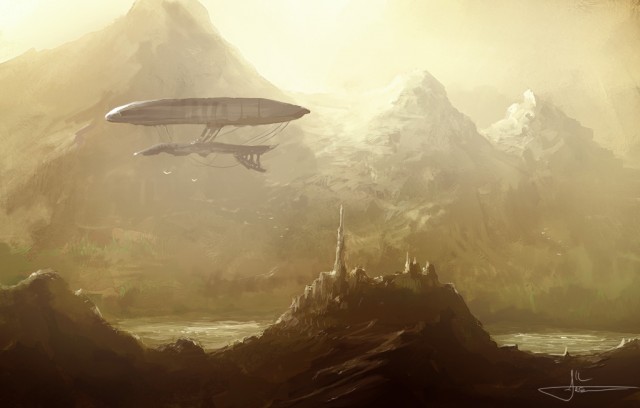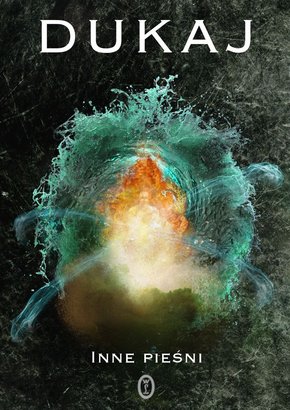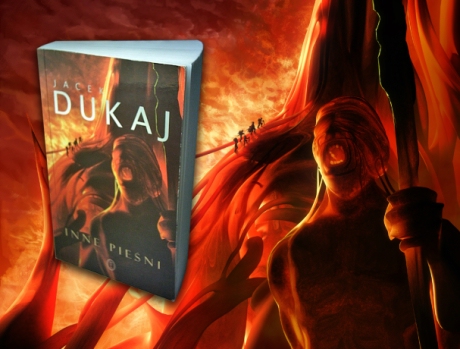I have a very strange relationship with the Fantasy genre. On one hand, I absolutely love the classic Tolkienesque “dwarves, elves and goblins” style settings in my movies, video games and pen and paper RPG’s. On the other hand, I don’t read many fantasy books because the genre is a little bit stagnant. I wrote about this many times before. SF genre tends to force writers to invent new interesting settings all the time as the progress makes old predictions obsolete. No one these days can get away writing the same way Asimov, Lem or Clarke did in the past. If they do, they typically get lumped into the Space Opera category and scoffed at. Writers aspiring to do “serious business” Hard SF must always move their goal posts and look to the future. Conversely, there is no such thing as “Hard Fantasy”. The genre is pretty much based on cribbing from Tolkien and/or Howard, and telling redundant stories in pseudo-medieval settings colored by pseudo-Germanic folklore. Granted it wouldn’t be as bad if most Fantasy writers would design their settings from scratch based on local folk tales. Most however just import Tolkien’s interpretation of Germanic myths, and then uproot, flatten and bastardize it.
The interesting question is: can you write a really good fantasy novel? The answer is yes, you can. It’s been done. Tolkien spent most of his career doing just that. The Lord of the Rings trilogy was his Magnum Opus, and the sheer amount of love and hard work that went into it clearly shows. It became a huge, paradigm changing phenomenon, precisely because it was unique in its own right. Therefore the recipe for great Fantasy is not to crib from Tolkien but try to imitate his technique. You start with a concept and build your setting around it. Tolkien decided to frame his universe around Germanic, Saxon and Norse mythology and folklore. If you want to write good Fantasy you should do exactly that: pick a framework (be it mythology, philosophy or both) and build your setting around it. And he did a really, really good job fleshing out that mythology and making it his own, so the further you get away from it, the better.
Here is an idea crazy enough to work: a Fantasy setting framed around Aristotelian metaphysics. Let’s assume that Earth is the center of the universe and the sun, the moon at the stars rotate around it floating not in vacuum but in a celestial medium known as Aether which is considered the fifth element. Most of earthly matter is composed not of atoms but out of the four remaining elements (earth, water, fire and air) mixed in differing proportions. Nature is theological and there is inherent purpose in all things. The elements coalesce into mountains, lakes and precious metals depending on local circumstances to fulfill one of the finite number of ideal forms which exist separately from matter but is expressed in material substances.
Now that we have this setting, lets add a dash of Hagelian philosophy and say that human mind can influence the form and thus indirectly manipulate the matter around them. What does that mean exactly? Well, it means that if you get sick, it is not because of some virus or bacteria, but because of a mental defect. If you are depressed, plagued by guilt, doubt or madness your body reflects this and you shrivel up and suffer all kinds if ailments. Conversely, if you are confident and believe in yourself your body will over time conform to your self-image and you will grow taller, stronger an more beautiful. Those with exceptional strength of personality will actually radiate outwards and force itself upon those around you. So for example, if you believe yourself to be an exceptional leader you will likely posses an aura that will influence those around you to be more disciplined, obedient and competent at their jobs. If you consider yourself an exceptional warrior those who fight along your side will become more adept, accurate and deadly. Some individuals are born with a special affinity to one of the elements or substances. For example those with affinity to air can build flying ships by imbuing wood and metals with their favored element making them float above the air. Those with somatic affinity can become clerics who can heal you by laying on hands and willing your body to mend. Few truly exceptional individuals have such strong auras that they can influence hearts and minds (and therefore bodies) of entire nations. Thus those living under the rule of a dour hedonistic despot will over time become humorless and selfish themselves, while those serving a happy benevolent master will thrive.
If you think this is kinda interesting, you should keep in mind I did not make this up. This is more or less the setting of Other Songs (Inne Pieśni) by Jacek Dukaj. If there was such a thing as Hard Fantasy this would be it. It is not an easy reading book, and the setup I concisely described above is slowly unveiled and explained over lose to 800 pages. It is part an adventure novel, part fantasy, part alternate history, part philosophical discussion of the Aristotelian/Hegelian philosophy.
The action takes place in the alternate version of our Earth with alternate physics. Alternate histories often have a clearly defined breaking point after which everything changes. In Other Songs such an event was emergence of Alexander the Great who is described as the world’s first kratistos (from Greek word meaning strongest, noblest, most excellent) whose force of will could influence entire nations. After Alexander there were many others: immensely powerful and influential men and women who have evolved to being more or less living gods. After few centuries of turmoil the earth was neatly divided between the winners. They uneasily coexist constantly scheming, plotting and maneuvering for advantageous position. When a kratistos becomes overly ambitious others may unite and conquer him/or her for his territories. Whenever new kratistos is born he or she must find a niche somewhere in between the existing powers or perish.
The protagonist of the novel is Hieronim Barabelek, an aristocrat and former military strategist whose greatest claim to fame was a heroic last stand against the armies of the Rasputin like kratistos of the Ural mountains known as The Sorcerer. Unfortunately when The Sorcerer himself took the field Barabelek’s will was broken and his army fell. His mind and spirit broken, he shriveled up to half the size and became sickly, shy and melancholic recluse. His marriage falls apart, but years later he is reunited with his children. Barabelek’s son turns out to be an ambitious young man who intends to follow in his fathers’ footsteps and wants to learn military doctrine from the living legend that is his father.
Barabelek is keenly aware of the fact he is no longer the man his son admires. However new responsibilities as a father, and his son ambition influence him to come out of his shell and start taking new risk. Thus he agrees to travel to Africa to take part in a kind of an aristocratic safari cum hunting expedition into uncharted wilderness that exists beyond the civilized form and outside the sphere of influence of any kratistos. In the heart of Affrica the matter seems to lose its form, giving birth to all kinds of chimeras and monsters from flying snakes and rainbow colored zebras to absurd vicious predators made solely out of blood and fire. The true nature of this place is a mystery and a subject of intense theological debate, especially since it is impossible to chart or explore. The deeper you go the more influenced you become by the broken form of the place. Your fingers may fuse together, your teeth may become glass, your eyes may evaporate, etc.. Some say that at the very heart of this disruption lies impossible city populated by impossible creatures. Unfortunately those who went that deep came back irreversibly wrapped and were driven mad so their reports are less than reliable.
Barabelek’s expedition goes further than most, and what he finds there changes him forever. Unraveling the mystery of the schism that warps the reality in the heart of Afferica becomes his obsession, which takes him to the moon (the domain of a banished ancient and immensely powerful kratistos) and back. He eventually figures it out…
[SPOILERS]
It’s aliens. But not regular aliens as we know them, because in Dukaj’s world such aliens simply can’t exist. Stars are simply spheres of Aether that rotate around earth – there are no alien planets or solar systems. So real aliens can only come from a alternate reality with alternate physics. The alien minds, much like the human minds influence form of the matter around them, and force it to conform to their alien standards which appear to be incompatible with ours. Their very presence causes our reality to break apart, and wrap in impossible way until it becomes their reality. Almost by definition these aliens are impossible to understand, because understanding them would mean assuming their form, and thus leaving our universe behind.
Barabelek discovers that the Affrican phenomenon was caused by a small landing party, and that there has been a similar incursion on the moon many decades before. Lunar astrologists have been tracking the movements of the stars, and by observing deviations of their orbits they have theorized that there is an entire alien invasion fleet sitting somewhere beyond the orbit of Saturn. How do you fight reality wrapping aliens? Conventional ways have proven to be inefficient. For example using artillery to destroy the wrapped Affrican jungle failed because cannon balls would turn into birds or spiders, or sand before hitting the ground. The only reliable way to combat the threat seems to be to force our own form and order onto them. This is something only a powerful kratistos could do. But a single kratistos would likely be swallowed up by the invasion fleet without much hassle. So Earth’s only hope for survival is to unite all the world leaders, pack their armies onto air-ships that can sail through the aether and wage war in space, which was never done before. Especially since most of said leaders do not believe the threat is real. Who better to convince them otherwise through plot, intrigue, assassinations and political machinations than brilliant strategist Barabelek. That is, if he can actually get his shit together.
Dukaj’s alternate universe is strikingly original and just bristling with interesting ideas. Just to give you a taste, here are some notable highlights from the novel:
- The moon (just like other celestial bodies) is made mostly out of Aether and Pyr (the fire element) and as such would be uninhabitable. In fact, under normal circumstances things would simply fall of the surface of the moon because gravity is always toward the center of creation. Life exists there only thanks to the influence the banished kratistos Illia, who not only was able to reverse the gravity but made it possible for plants and animals to thrive there. Still, it remains a harsh and unforgiving place. Everything, including the air you breathe is infused with the fire element. So every breath scorches your lungs, everything you touch burns your skin and you can’t even quench your thirst because water will burn just as much. You eventually get used to it, but it is not fun.
- Some of the natives of the moon are born with the affinity to the flame element, and their very blood is infused with it. When they get angry, they pretty much become the Human Torch from Fantastic Four. They are the warrior caste, and they make their battle armors from pure Aether. The main property of the fifth element is that it is in constant motion, so the armor is basically a collection of interlocking plates and ball bearings fine tuned to orbit each other. These armors can be used for defense or offense when the warriors kick the Aether in their gauntlets into higher orbits turning them into chainsaw like weapons.
- One of the many places Barabelek visits during his journeys is a floating city. It was created by a kratistos who was born at the intersection of two major world powers and felt squeezed out by the neighbors. When he hit puberty he ripped out his home town and surrounding fields and villages from the ground Dalaran style and relocated it into the middle of the ocean. Some of the men and women who are born in his aura develop extreme affinity to the air element to the point that their bodies become lighter than the air. The locals call them angels, and they commonly wear silver breast plates, or chains to weight them down so that they don’t get blown off the island by wind.
- How do the characters know The Sorcerer has arrived in town? The spiders start building their webs in the shape of pentagrams.
- Sea battle with a Kraken. Yep. This novel has it.
- Dukaj describes a fight between an Ares (a person with a strong warrior aura) and a Nimrod (strong hunter aura) and it’s absolutely ridiculously brutal. Back in 2006 I reviewed a silly fighting game called Toribash in which the players can mutually dismember each other if they play it right. It’s kinda like that. It’s over in seconds, and there are body parts all over the floor. It’s also worth mentioning that the combat is kindof a big deal and involves rather important characters who got manipulated by bigger players. It’s one of those “oh, crap – I can’t believe this is happening” moments.
- The novel ends with a classic Dukaj mind-fuck. It both gives you closure, but at the same time is open to interpretation. It will definitely leave you scratching your head, and trying to work out the staggering implications of what just happened on the last page.
Other Songs is nothing short of exceptional. Dukaj is primarily Hard SF writer and it shows. The scope and amount of research that must have went into this novel is staggering. I often praised the author for not coddling his readers and expecting them to have not only basic knowledge of basic science and technology, but to be at least moderately genre savvy and fluent in the SF jargon. In Inne Pieśni however he makes sure his setting is adequately explained. There are lengthy digressions and/or dialogues which the characters study or discuss the unique metaphysics of their universe. The style is somewhat reminiscent of Stephenson’s Anathem with it’s scholarly dialogues, but Dukaj is harder and more unforgiving on his characters. His universe is cold, unforgiving and full of treachery. It’s almost as if Anathem and Game of Thrones had a love child.
The novel is pretty hard to pigeon hole and classify. I opened this review by discussing the Fantasy genre because personally I think that’s where it belongs. However it’s not very clear cut. After all, the book contains aliens and at least one large space battle which you could argue are very much SF topics. I guess it depends on how you actually define science fiction. For me the genre has science in the name for a reason. Seeing how Other Songs does not actually involve any real science, but rather a very well executed and interesting system of metaphysics, I’d argue it belongs firmly in the Fantasy setting.
As far as I know there is no English version of the novel as of yet. But if you can read Polish, I highly recommend it. This book will change the way you view Fantasy forever.





I was somewhat expecting that, but still… laaaaaaaame.
Luke, I have three observations:
1. The part about Hagelian philosophy sounds like Planescape, where belief is paramount and effects reality. This was worked brilliantly into the premise of the Torment game. Planescape itself was about as non-Tolkienesque as a fantasy setting I’ve seen.
2. You mentioned Anathem–but I skimmed everything after the spoiler warning (for obvious reasons) so I’m not sure–but I think Anathem works quite well as “hard fantasy” speculative fiction considering its frequent allusions to Plato (or whoever the Arbre version of him was) and its wider philosophical underpinnings.
3. Have you read The Book Of The New Sun by Gene Wolfe? It’s “science fantasy” at its best, set millions of years in the future in the ruins of countless human civilizations (under a green forested moon) in a medieval society where the ruling class has access to spaceships and more, with a commonwealth of states fighting a costly war against eldritch leviathans in the oceans (and their thralls). And that’s just stuff in the background, because the reader has to decipher everything said by a lying, unreliable, and possibly insane narrator. He never specifies if a “sailor” sails the oceans, the skies, or between the stars, for instance, because to him they’re all alien expeditions. The book really only makes sense on a second read, and actually works quite well if you read it back to front. I love how effortless it seems and how much trust it places in the reader to figure things out. Here’s a random quote:
@ Matt`:
Yeah, I know. Sorry. :P
@ Karthik:
I haven’t read it but it sounds really interesting. I would have said I’m going to put it on my Amazon wishlist (which is my “books to read” list essentially) but it’s already there. At some point I stumbled upon it, and decided it was worth picking up, but your recommendation just bumped it to the top of the list. :)
You really love that “Oh, here’s an awesome idea […] By the way, I didn’t make that up myself”-style, don’t you ;) That book sounds fascinating, but not quite fascinating enough to learn Polish. Well, at least I can check out The Book of the New Sun. Thanks, Karthik! I decided to recommend a German book as revenge, but it turns out that it’s been translated into English. Anyway…
“Rumo” by Walter Moers. It’s not quite serious fantasy, but, unlike Pratchet, Moers doesn’t parody fantasy cliches that much. Rather, he just churns out an endless stream of bizarre ideas. The book is thick with subplots, asides, stories within the story and other tangents that eventually turn around to join the main plot. The protagonist Rumo is a Wolperting. A Wolperting is a kind of dog, but some of them learn to walk upright and talk around the time they grow their first teeth. These ones become fearsome fighters and their main pastimes are sword fighting (because biting your enemies to death is not civilized) and playing chess (so that no one can say they are not cultured). They abandon their children in the wild, because chances are that they’ll remain animals, anyway. The other ones usually find their way back to the Wolpertings’ city state. Rumo spends his childhood trapped in the pantry of a group of cyclops. He is taught fighting by a shark-maggot to finally liberate the captives in the pantry. When he finds the city, he has become a kind of “battle nerd”, even for a Wolperting, who is rather awkward around others. When the city gets captured by the forces of Below-world (not Underworld), he is in his element again. The main plot is rather simple, it’s all the weird stuff around it that makes it interesting. There are gnomes with several brains that can bacterially transmit knowledge, a mechanical warrior who falls in love with a torture machine, a sword that is possessed by the souls of both a demon and a cowardly troll, …
Another book by the same author that I just bought today, but didn’t start yet is “The City of Dreaming Books”. From what I read about it, it takes place in a city where books are considered the most valuable things and mercenaries go dungeon-crawling in the catacombs below to find rare books – or murder other people to get their books.
BERBELEK, not Barabelek.